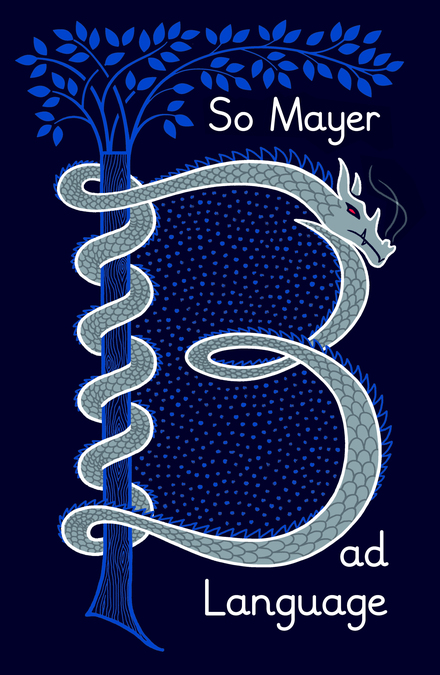Bad Language by So Mayer
So Mayer's manifesto-memoir Bad Language explores words as weapons of oppression and resistance
Bad Language, manifesto-cum-memoir from writer and editor So Mayer, dives deep into the archives – of their life, of colonial violence, of protest – to lay bare the politics of speech. What is a ‘bad word’?; Who decides; and what happens to our histories when the written word becomes gospel?
Mayer gives their answers in an at-once deeply personal and rousingly universal work that takes us through the OED, bust cards, BDSM safewords, Tarot decks, and the two writers who have been a constant in their lives for as long as they have been able to read: “God, and Ursula K. Le Guin.” Eurowestern culture (which Mayer hilariously shortens to EW, “for obvious reasons”) has a lot to answer for when it comes to how language stifles and oppresses. They were still young when EW taxonomies began to delimit their future, particularly in the walls of the synagogue or at home where the semantic traps of their multilingual upbringing instilled in them an associative curiosity towards language.
It is this curiosity which they impart on us throughout Bad Language in the form of invitations to make connections outwith traditional linguistic study. From one language tree to another, for example, or from the words we speak to our bodies – those inconvenient, complex things crammed awkwardly into the binary of English grammar.
The result is Mayer’s own pin-sharp act of protest against dominance culture. Because, as they say best, “it is only by using language that we can change it – and, through it, the world in which we speak.”

